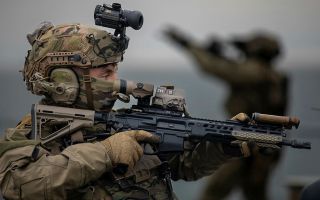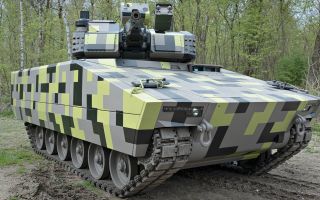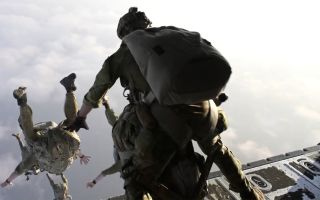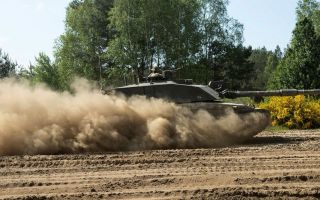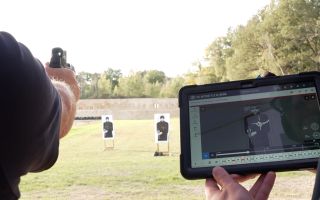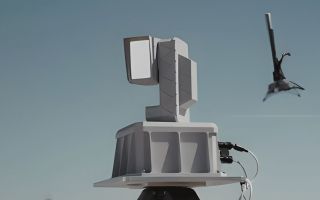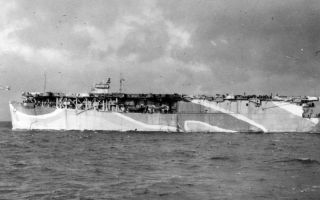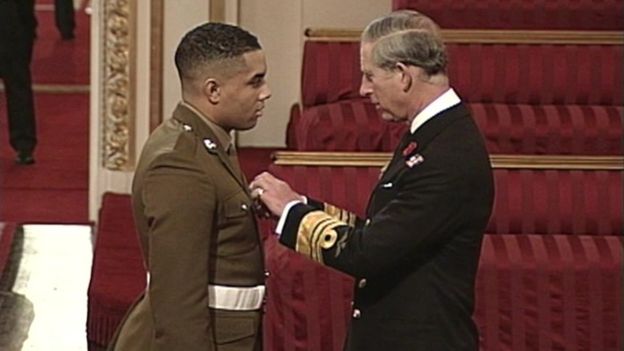
Tri-Service
Why A George Medal Recipient Has To Sleep In His Car

One of the youngest recipients of the George Medal says better support is needed for members of the British Armed Forces who leave the military with Post-Traumatic Stress Disorder (PTSD).
Medically-trained fusilier Daniel Smith, from Rochdale, tried to help fellow soldiers in Iraq who had received terrible injuries.
The vehicle patrol he was part of was hit by roadside bombs twice in a week in 2005. The Ministry of Defence citation when he received his medal, at the age of just 21, said:
"With no regard for his own safety and with his focus firmly on saving those in the vehicle, he commenced the evacuation of the casualties from the burning chaos."
It's thought, however, that this incident was the spark for the PTSD Mr Smith now suffers from.
He told the BBC he's found it difficult to get treatment, while his marriage has failed and he is struggling to find work.
Mr Smith added that he parks in a lay-by and sleeps in his car a number of nights a week to get away from people and control his anger management issues. He told the Victoria Derbyshire programme:
"I just don't like being around people sometimes. I just want to close myself off. Basically I don't like living on people's sofas, I am not relying on people to put up with me.
"When I am depressed I would rather be alone so I've just got used to doing it now. I have got my quilt and stuff in the back and I have got my internal wifi here so it's like a mobile house."
Mr Smith, now 31, says he blames himself for not being able to save his friends. He said:
"I took a lot of guilt because obviously I thought I did my best at the time when I was treating them.
"I didn't really think they would die, I just thought they would be injured or go back home, but they passed away and obviously that was a big shock to us and I didn't know how to take that."
"I became a bit scared then. I didn't know what to think or what my next step would be. Because it happened to me twice and I thought it will happen to me third time unlucky."
He added that he doesn't feel like he deserves his medal, and that he doesn't even really remember being awarded it by Prince Charles. He said:
"I didn't really take it all in, I was very numb that day because I was on medication anyway so my mood and my temperament wasn't the best."
Mr Smith said his treatment was good at first, with six weeks of intensive therapy, but that he was left bitter and frustrated when it tailed off.
He was eventually given a medical discharge from the Army, but his marriage failed because of his anger, which also made him lose his job as a bailiff. He said:
"At the time I was blown up I didn't really think it would affect me. It didn't feel reality at the time but a year later it had time to sink in, your depression kicks in, you're drinking.
"You don't realise you are changing, but other people see you are and you just become very angry towards them."
His father Gary, meanwhile, said his son has been "pushed from pillar to post" after leaving the army and that the family has since spent more than £3,000 in trying to get him diagnosed and treated:
"Basically all they have done is put a sticking plaster over a gaping wound and just sent him into general society to pick up the pieces which is really difficult, because society doesn't pick the pieces up from remnants of the army."
"There was no follow-up from the NHS, there were no papers handed over from the military to the NHS to follow on his treatment."
He added that he thinks a long-term recovery is unlikely without treatment or a support network.

Daniel Smith received a George Medal (2nd from right) for his brave actions in Iraq
Daniel Smith, meanwhile, said: "I feel like I have been cast aside until the next person comes along because I haven't done anything wrong."
Early last year the leading mental health charity for ex-service personnel said there had been a sharp rise in numbers of veterans seeking help for post-traumatic stress disorder.
Combat Stress, which provides counselling and support to traumatised ex-service personnel, said there had been a 26 per cent rise in people seeking its services over the previous year, and that they’re now treating almost 6,000 veterans.
The Ministry of Defence said it did not comment on individual cases, but that:
"The government is absolutely committed to the mental health of our armed forces and provides a wide range of support both during and after service.
"We work closely with other government departments and agencies so that where necessary, there is continued effective treatment and support on transition to civilian life."
Cover photo courtesy of Daniel Smith.

